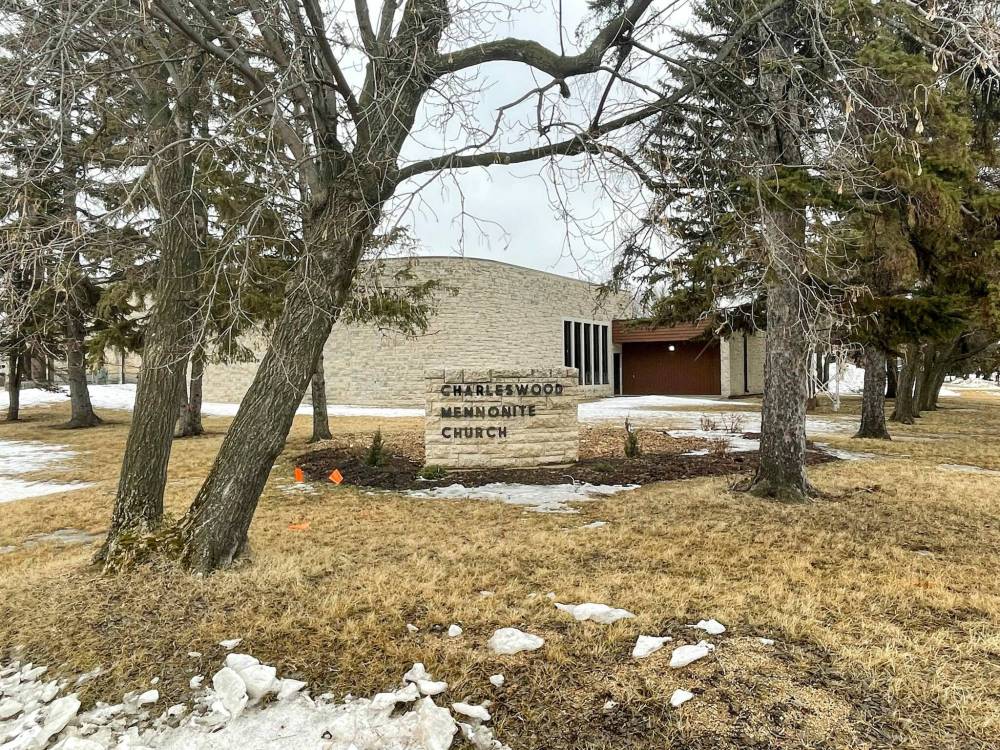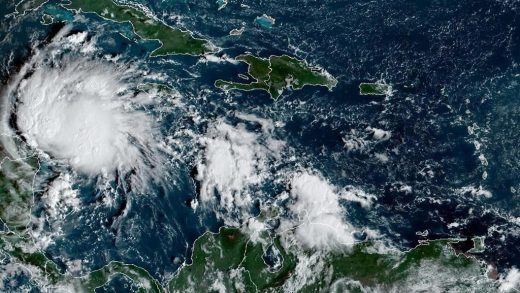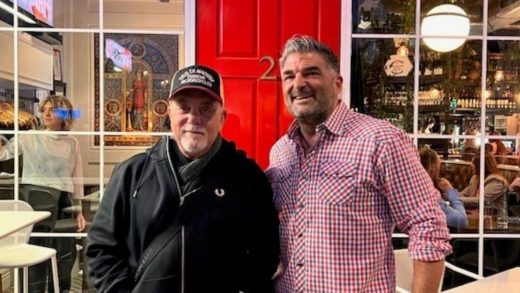
After Charleswood Mennonite Church adopted a statement of reconciliation with Indigenous people in 2021, congregation members decided to do more than just recite a land acknowledgement each Sunday.
They wanted to act by making reparations.
“We decided to give one per cent of our annual budget to Indigenous organizations, in an open-handed way,” said co-pastor Jonathan Neufeld. “No strings attached.”
Ruth Bonneville / Free Press Charleswood Mennonite Church decided to give one per cent of its annual budget to Indigenous organizations.
The church decided to give half of that one per cent to Clan Mother’s Healing Village, an organization that supports Indigenous women, and the other half to the Share the Gifts Reparations Fund, which collects money from churches, organizations and individuals to support Indigenous-led groups.
For the church, which is located on land in southwest Winnipeg that was once used by the Métis, Anishinaabe and Swampy Cree people for hunting and trapping, it’s a way to “tangibly show we have benefited from this land as a church and individuals,” Neufeld said.
Charleswood is one of three churches in Winnipeg that have been inspired by Adrian Jacobs, senior leader for Indigenous Justice and Reconciliation in the Christian Reformed Church in Canada, and a member of the Six Nations Haudenosaunee Confederacy of the Grand River Territory in Ontario, to pursue his idea of sacred covenants and reparations with Indigenous people.
Jacobs suggests that Canadian churches wanting to pursue reconciliation with Indigenous people consider donating a symbolic amount, such as one per cent of their budgets, to local Indigenous-led organizations as a way to show how they have benefited from stolen land.
“It would be a spiritual covenant with local Indigenous people, a treaty between people with respect to the land,” he said, adding they could also build relationships with Indigenous people in their communities.
“They could learn what their issues are, sit together, eat together, laugh, cry and dance together.”
Churches are supposed to be the conscience of the country, and “they can lead the way,” Jacobs said.
Thus far, four Mennonite congregations — three in Winnipeg and one in Ontario — have taken up his suggestion.
Home Street Mennonite Church is also giving one per cent of its budget to two local Indigenous organizations. The decision came after about three years of discussion, said Esther Epp-Tiessen, who is part of that church’s Indigenous-settler relations committee.
For Epp-Tiessen, the story of how the church decided to pay reparations is placed in the larger context of settler colonialism, which she said includes the theft and dispossession of Indigenous land and the near-erasure of people from that land.
By paying a reparation, the church — which was built in 1920 on land once owned by a Métis family — seeks to acknowledge that context in a tangible way, she said.
“This isn’t about a charitable donation from our benevolence,” she said. “It’s a powerful symbol of a commitment to be treaty people. It is money that is owing.”
Winnipeg’s Hope Mennonite Church has been donating a percentage of its budget and the value of its property to local Indigenous organizations since 2022.
“We realize that reparations are something that we should and need to do,” said lead pastor Lynell Bergen.
Stirling Mennonite Church in Kitchener, Ont. has been paying one per cent of its annual budget to a local Indigenous-led organization since 2021. When proclaimed in 1874, Indigenous people who were part of Six Nations were told they would receive lease payments from those who came to reside on the land. That never happened.
That history helped inspire the congregation’s decision to understand what it meant to explore “right relations” with their Indigenous neighbours.
“We looked at the treaty, all the things that were forgotten,” said pastor Josie Winterfield.
The payment is symbolic, she said, noting “it doesn’t come close to what they lost. It’s about learning to live in a good way with Indigenous neighbours.”
The Free Press is committed to covering faith in Manitoba. If you appreciate that coverage, help us do more! Your contribution of $10, $25 or more will allow us to deepen our reporting about faith in the province. Thanks!
BECOME A FAITH JOURNALISM SUPPORTER

John Longhurst
Faith reporter
John Longhurst has been writing for Winnipeg’s faith pages since 2003. He also writes for Religion News Service in the U.S., and blogs about the media, marketing and communications at Making the News.
Read full biography


